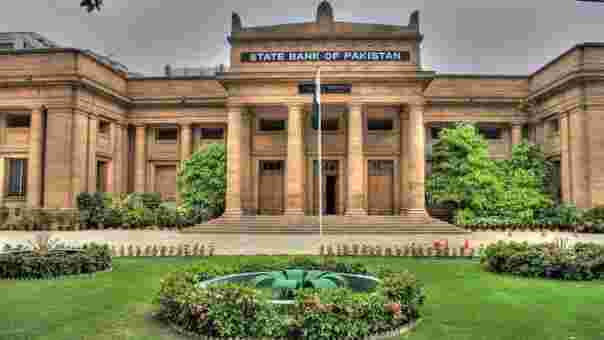Karachi, October 20, 2024 — The State Bank of Pakistan (SBP) has attributed a significant surge in Federal Board of Revenue (FBR) tax collection for the fiscal year 2023-24 to elevated interest rates.
In its latest report, the SBP highlighted that higher interest rates played a pivotal role in boosting taxes, particularly through income tax paid by banks and withholding taxes on individual earnings from bank deposits and government securities investments.
The report notes that banks reaped substantial profits due to the government’s increased borrowing at higher interest rates, which translated into significant tax payments. The banking sector witnessed a 41.4% rise in net investments during CY23, a stark contrast to the 26.4% increase in CY22. The bulk of these investments were concentrated in government securities, leading to a notable increase in banks’ net interest income as a percentage of their gross income, which climbed from 79.8% in CY22 to 82.9% in CY23.
The SBP report underscores the role of withholding taxes, which saw an uptick due to profits earned by individuals from bank accounts and government securities. This surge in profits, according to the central bank, was driven by two key factors: attractive returns due to higher interest rates and a growing tendency among individuals to invest in risk-free government securities as a hedge against inflation. This behavior, the SBP explained, aligns with historical patterns, where individuals flock to secure investments during periods of elevated interest rates.
Additionally, the SBP pointed to heightened public awareness about risk-free investment opportunities, which likely spurred further investment in government securities. This shift toward safer investments helped fuel the increase in tax collection related to bank interest and securities.
The report also highlighted the role of inflation in bolstering indirect taxes. Although inflation decelerated toward the end of FY24, its elevated levels still contributed significantly to higher tax collection. Around half of the 26.8% increase in domestic sales tax was attributed to soaring electricity prices, while rising prices of commodities such as sugar, cement, and cigarettes further boosted sales tax and Federal Excise Duty (FED) collection.
Moreover, corporate profits saw an upswing, with many non-financial firms benefiting from improved net profit margins. This rise in profitability translated into higher dividend payments to shareholders, leading to an increase in withholding tax collections.
Lastly, the SBP noted that the depreciation of the Pakistani rupee, combined with a 14.9% increase in import volumes (in PKR terms), helped offset lower unit values of imports. Consequently, taxes collected at the import stage surged by 20.2%, reversing the previous year’s decline.
The SBP report paints a complex picture of the economic landscape, where high interest rates, inflation, and shifting investment behaviors converge to drive robust tax collection in FY24.
